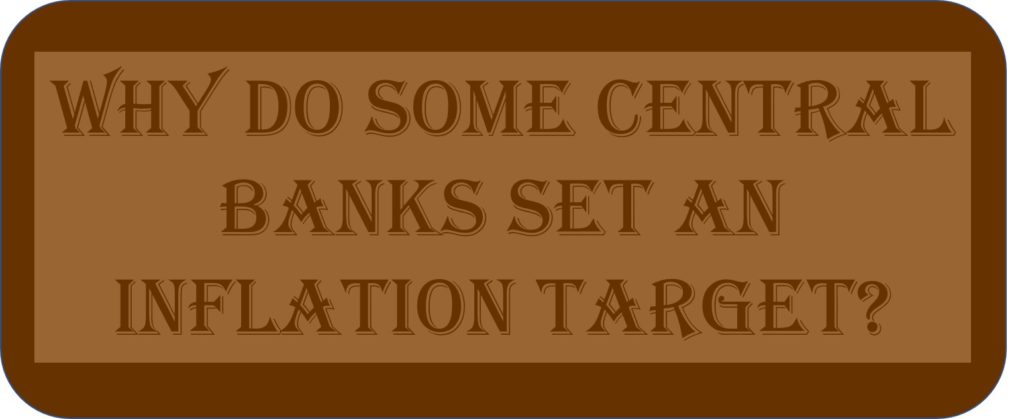Why Do Some Central Banks Set An Inflation Target?
Inflation is defined as a sustained increase in the general price level. The general price level is the average of the prices of goods and services in the economy. Inflation is commonly measured by the percentage increase in the consumer price index (CPI). In economics tuition, one will learn that high inflation is detrimental to the economy as it will lead to a fall in the real value of savings and export competitiveness. The economics tutor will explain the reason why some central banks set an inflation target. However, for some reasons, the concept of inflation target has proved to be a little confusing to a significant number of students in economics tuition. Further, many of those who understand the concept have difficulty in explaining clearer in the examination. I will provide a simplified explanation of the concept of inflation target to help students do well in the examination.
Concept Of Expected Inflation
In order to understand the concept of inflation target, one first needs to understand the concept of expected inflation. Actual inflation is determined by several factors which include inflation in other economies, wages, the exchange rate, oil prices and expected inflation. One can learn the determinants of inflation in economics tuition with an experienced economics tutor at a reputable economics tuition centre in Singapore. Economics Cafe Learning Centre is a reputable and renowned economics tuition centre in Singapore that specializes in A level economics tuition. Expected inflation is an important factor. Expected inflation arises as the prices of goods and services rise over time. After deflation and inflation were equally common before the 1950s, inflation has been far more common than deflation since the 1950s. Therefore, people generally expect the prices of goods and services to rise and hence the term expected inflation.
Link Between Expected Inflation And Actual Inflation
Assume that workers expect the prices of goods and service to rise sharply due to reasons such as expectations of a sharp rise in oil prices. An increase in the prices of goods and services will lead to a fall in real wages, assuming nominal wages remain constant. The distinction between nominal wages and real wages can be learned from a good economics tutor providing economics tuition at the pre-university level. In order to maintain their real wages, workers will bargain for higher nominal wages. Therefore, if workers expect a sharp rise in the prices of goods and services, they will bargain for a large increase in nominal wages. However, a large increase in nominal wages will lead to a substantial increase in the cost of production in the economy. When firms face a large increase in their costs of production, they will increase their prices by a large extent in order to maintain profitability and this will lead to a sharp increase in the general price level resulting in high inflation. Therefore, high expected inflation will lead to high actual inflation. Conversely, low expected inflation will lead to low actual inflation, other things being equal.
Link Between Inflation Target And Expected Inflation
There are about 25 economies in the world where the central banks have set an inflation target. For example, the Reserve Bank of Australia has an inflation target of between 2 and 3 percent. The Bank of England has an inflation target of 2.5 percent with a tolerance band of 0.5 percent which effectively results in an inflation target of between 2 and 3 percent. An inflation target will lower expected inflation. As explained earlier, high expected inflation will lead to high actual inflation. It follows that lower expected inflation will lead to lower actual inflation. However, an inflation target will lower expected inflation only if the central bank is perceived to be committed to achieving the target. In other words, the credibility of the central bank is of paramount importance for an inflation target to effectively lower expected inflation. Apart from lowering expected inflation, an inflation target can also be used to assess the performance of the central bank. The economics tutor at Economics Cafe Learning Centre will explain this in greater detail in economics tuition.
Christopher Lau
Economics Tuition Singapore @ Economics Cafe
Principal Economics Tutor: Mr. Edmund Quek


